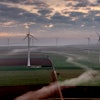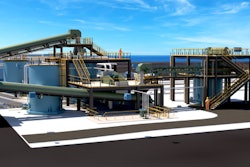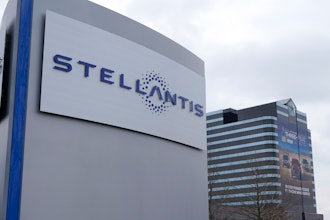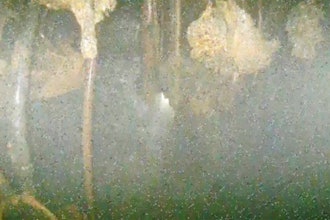PARK RIVER, N.D. (AP) -- Bernie Kringstad started his business with three employees who repaired farm machinery and manufactured potato equipment.
Now fast-growing Kringstad Ironworks near Park River has diversified into the sugar beet and wind power industries and is working with customers from as far away as Florida.
"We've really been growing, getting into new things. It's just a lot of fun," Kringstad says.
The new products include the prototype of a portable dry rescreen plant that reduces tare, or dirt and other unwanted materials, in sugar beets.
Muddy harvest conditions in both 2008 and 2009 have made tare a greater concern, says Dan Bernhardson, director of agriculture for Moorhead, Minn.-based American Crystal Sugar, which has used the machine on a trial basis.
Crystal Sugar has used the device and is evaluating whether to continue doing so. A decision is expected this summer, Bernhardson says.
Kringstad Ironworks has worked on a number of projects for Crystal Sugar through the years.
The relationship expanded about four years ago when the Park River company began producing beet pilers for Crystal Sugar. Another company made the pilers before Kringstad Ironworks.
Pilers transfer beets from trucks to temporary storage piles, where they remain until taken for processing.
New pilers -- which Kringstad says sell for more than $1 million each -- are assembled in Park River. A single piler weighs about 265,000 pounds and is taken in pieces in eight semi-loads to the piling sites where the machines are reassembled.
Kringstad says his company also works with other sugar beet companies both regionally and nationally.
Kringstad Ironworks had produced two pilers a year and plans to make three this year. Kringstad hopes the number will increase to four or five annually.
The Park River company's growing reputation in the sugar industry drew interest from Florida-based U.S. Sugar Corp., a major player in the sugar cane industry.
Kringstad Ironworks is designing sugar cane piling equipment for U.S. Sugar, Kringstad says.
He estimates that sugar accounts for 75 to 80 percent of his company's business, with wind accounting for 10 to 15 percent.
Kringstad Ironworks makes web molds that provide reinforcement for the fiberglass blades produced by Denmark-based LM Wind Power, which recently changed its name from LM Glasfiber.
The Park River company won the work through a competitive bidding process.
Products from Kringstad Ironworks are taken by truck to LM Wind Power's factories in Little Rock, Ark., and Grand Forks.
Other products and services, including general farm repair, equipment for the potato industry and the long-popular SAFE-T-PULL hitch system, account for the remaining 10 to 15 percent of Kringstad Ironworks' business.
"All this diversification is great. It's helping us grow," Kringstad says.
SAFE-T-PULL is widely used in the Red River Valley, particularly during muddy potato and sugar beet harvests.
With SAFE-T-PULL, a bracket is mounted to the front of a truck, with a hydraulic-operated hitch on the rear of a tractor.
The system is easier and safer than using ropes, chains or cable, Kringstad says.
Kringstad grew up in Hoople, the son of a manager in the potato industry.
Bernie Kringstad, a welder by trade, launched Kringstad Ironworks in 1996 on a farm between Hoople and Park River.
Kringstad Ironworks operates now in a former mushroom plant in Park River. The 55,000-square-foot site includes a 6,000-square-foot addition built this winter.
The company also is adding employees, hiring seven more people over the winter to what's now a 46-person work force. There also will be 15 seasonal employees this summer
While many manufacturers, both nationally and regionally, have reduced their work force during the worldwide recession, "we've been able to grow, which is a real credit to the employees," Kringstad says. "They're good at their jobs."
Economic growth isn't something that's always associated with the northern Red River Valley, he says.
"It's good to have our business up here in the northern valley, in the north country," he says.






















